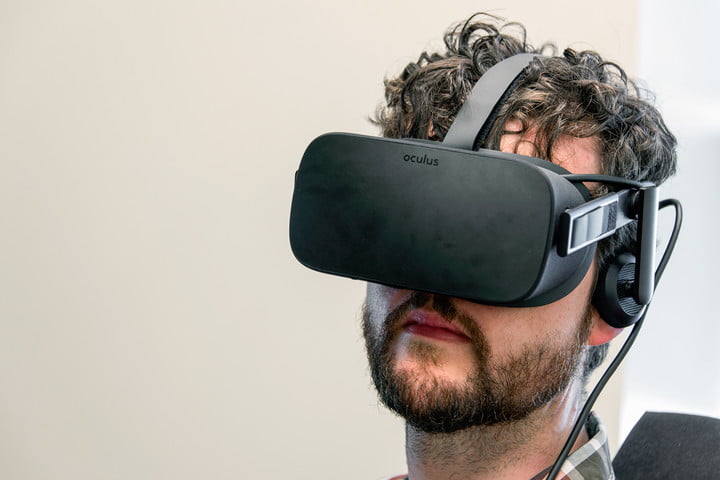
If your license plate expires, you can still drive the car. But when a software-based certificate expires, you can’t drive the Oculus Rift to any virtual realm. Owners of the Facebook-owned virtual reality headset for the PC discovered this harsh reality on Tuesday when they booted up the device and faced a warning message, blocking use of the device: It can’t use the Oculus Runtime Service.
The problem has nothing to do with PCs or the Oculus Rift hardware; the issue is on the Oculus VR side that only the company can fix. More specifically, the OculusAppFramework.dll file currently has an invalid, expired certificate, preventing Windows 10 from running the software needed to power the Oculus Rift.
“We’re aware of an issue affecting Rift on PC, and we’re working on resolving now. Stay tuned,” said Oculus VR’s Nate Mitchell three hours ago.
A certificate is essentially a certified digital signature by the developer confirming that said software is genuine and distributed by the company. It’s a guarantee that the code isn’t altered, and is untouched by hackers. But because this certificate is certified, developers must pay for the certification. In the case of Oculus VR’s Oculus Runtime Service file, recertification likely fell through the cracks.
That said, rebooting the PC, rebooting the Oculus Rift, and reinstalling the software won’t solve the problem. Instead, Oculus VR must renew the “invalid” certificate and redistribute the software with the new certificate intact. After that, Windows 10 should be pleased with the update and allow Oculus Rift owners to return to their virtual realms.
A possible temporary fix is to set the PC’s system clock back to sometime before March 7, 2018. But the method could break other apps and software installed on the PC that require a precise date and time to function correctly. The best option is to wait for Oculus VR to release a software update that reactivates all the Oculus VR headsets currently in the dark across the globe.
The Oculus Rift global blackout follows news that the headset became the most popular VR device on Steam for the first time during the month of February. It commanded 47.31 percent of Steam’s VR headset market last month followed by the SteamVR-powered HTC Vive with a 45.38 percent share. Trailing very far behind were the new Windows Mixed Reality headsets with a 5.36 percent share, which began rolling out over the last several months.
For $400, the Oculus Rift kit comes with the VR headset, two motion-tracking sensors, two controllers, all the necessary cables, and seven free VR apps. Meanwhile, the HTC Vive kit costs $600 and includes the headset, two controllers, two motion-sensing base stations, all the necessary cables, and a digital code for Bethesda’s Fallout 4 VR.
The Rift’s rise in popularity on Steam is undoubtedly fueled by the lower price tag. Yet right now, HTC Vive owners can jump into their virtual experiences at any time while Rift owners are facing a global blackout.

